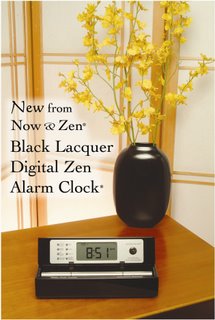
Music as a mindfulness practice
By Joseph Cardillo, PHD, and Galina Mindlin, MD, PhD
Daily life is often about juggling a variety of issues and trying to stay on top of it all. It is, however, easy to slip out of your mental best into something less productive.
Stressors are a major contributor to losing our mental edge throughout the day. Some are expected, like obligations, deadlines, and new projects. But there are the unforeseen ones too, like computer crashes, slow information processing, and interpersonal issues. Other factors that lower optimum performance range from emotional to organizational issues.
Many individuals resort to products like caffeine and energy drinks for that quick energy boost. In small amounts, these products can certainly do the trick, though not without side-effects, and the results are short term. You may ask, isn’t there something else? The answer may be as simple as reaching for your iPod, MP3 player, or cell phone.
We all know how good it feels to hear our favorite song. Imagine powering up your brain with that clean, positive energy at will, anytime, anywhere, and without side-effects. Imagine being able to think more clearly than usual, with a heightened perception of your surroundings, and being able to reach that state whenever or wherever feel the you need.
Neurological imaging has shown that music has a profound effect on both your mind and body. Whether your musical taste is Bono, Billie Holiday, or Celine Dion, you can customize playlists (a combination of your favorite songs) to keep you emotionally sharp and balanced, offering a natural way to relieve anxiety; increase alertness; feel happier; sharpen memory; improve mood; and fight off insomnia, depression, and even addictions without any side effects!
Psychologically, music can be used to change the way you operate in specific situations (like that next office meeting, family outing, or trip to the doctor). It can increase your ability to deal with stress and call forth your peak mindset in everything you do.
But what exactly is your peak mindset? Scientifically, it is a “balanced” mindset, meaning you are simultaneously operating from a place of both maximum calm and maximum alert. So you are not stressed at all—quite the opposite really—and you are highly alert, flowing from one thought, decision, or action to another. Your focus is peaked.
Optimum Calm and Alertness
Optimum calm is not your deepest calm; it is reaching the point where, if you got any calmer, you’d be too mellow. Even one drop more calmness would be too much. The same goes for your alertness: You’re optimally alert when any more excitement is too much and would leave you feeling “wired.” You’re at your “best” when you are balanced.
This is where music comes in. You can customize your iPod, MP3 player, or cell phone into a device to optimize your mindset in seconds. Here’s how:
1. Pay Attention to How You Are Feeling:
Figure out what you feel like when your mind is not in balance—you may feel out of sorts, too jumpy, or too mellow to get a certain task done.
2. Put Together a Playlist that Can Move Your Mindset Up or Down (Alert or Calm):
Start using your playlist (or any song on repeat mode) to help you into your mental best prior to specific situations and then again after seven to 10 minutes. The goal is to use your favorite music to reset your brain to its optimum performance. Note: Staying in a less optimum mindset long enough will make that your “normal” operating mindset. Here is how to begin a playlist that can balance you:
• First, pick calming songs you like a lot.
Choose any kind of music that calms your anxiety. Experiment. You can develop real precision in picking the right songs to relax you in specific situations. Sometimes, you instantly recognize what music you need at just that moment to soothe you. Select from those songs first. But then try listening to a variety of other songs you believe can more exactly relate to your specific needs at certain moments. For example, are you on your way to meet with new employees or are you headed to a meeting? Are you angry, sad, or anxious? Are there songs that instill calm into you, given where you are, how you’re feeling, and your goal? Begin tracking how specific songs change your moods and leave you feeling in specific situations. Add these to your playlist. Title situation-specific playlists for breaking down anxiety or creating calm, such as: “Before a Public Speaking Engagement,” “Going Home from Work,” “Traffic Jams,” or “Before Office Meetings.”
• Look for alertness-energizing songs.
Counter-balance calm songs with energizing, upbeat songs. This can help give you a boost when you need it.
• Pay attention to when a certain song works and when it doesn’t.
Songs are not always situationally interchangeable.

music and mindfulness
• Ingrain songs into your memory by playing them a lot.
So when you can’t listen to your calming or energizing songs, you have them stored in your mind.
• Make task-oriented playlists. Train your brain with your assembled playlist before and after specific tasks. This sends your brain the message that you want this specific mindset in all similar situations. Soon you will be able to call up your optimum mindset whenever you need it, whether you are actually playing the songs or not.
3. Spike Your Songs’ Effects:
Make a mental movie as your song plays. Maybe it is a song from long ago that made you feel safe and peaceful. Tip: Songs from your childhood, ones your mother may have played when you were a child that remind you of pleasant memories, or ones you may have sung with friends or to your own children, are great for relaxing. One business professional I know “charged up” with a song he and his friends would listen to on their way to high school soccer games when everybody got into an excited team mentality. Thinking about images or scenes as you listen to alerting or calming tunes will put your mind into “remembering mode.” This mode will transfer and give you faster recall with upcoming tasks—say, a meeting or presentation. What will work for you will be your own favorite songs.
The most important thing is getting your playlists set up in advance. This way you can carry your best mindset with you right in your pocket and have it at the push of a button. Then all you have to do is train your brain by using your lists over and over. You should begin to see effects in about three weeks. Enjoy the process!
Joseph Cardillo, PhD, is the best-selling author of Be Like Water and other books. He has taught at various universities, including the University of Albany. He received the prestigious 2011 State University of New York Chancellor’s Award for Scholarly Research.
Galina Mindlin, MD, PhD, is an assistant professor of psychiatry at Columbia University, the founder of Brain Music Therapy (BMT) in the United States, and the clinical and executive director of the BMT Center New York City.
The Walnut Digital Zen Clock’s long-resonating Tibetan bell-like chime makes waking and meditating a beautiful experience – its progressive chimes begin your day with grace. When the clock’s alarm is triggered, the acoustic chime bar is struck just once … 3-1/2 minutes later it strikes again … chime strikes become more frequent over 10 minutes … eventually striking every 5 seconds until shut off.

Walnut Digital Chime Timer & Alarm Clock - Boulder, CO
The Digital Zen Chime Timer & Clock serves as a countdown and interval timer for yoga, meditation, bodywork, etc.; and it can also be set to chime on the hour as a tool for “mindfulness.”

Digital Acoustic Chime Alarm Clocks from Now & Zen
Now & Zen’s Chime Meditation Timer Shop
1638 Pearl St.
Boulder, CO 80302
(800) 779-6383
Posted in mindfulness practice